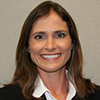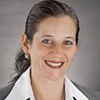Equine Law 101




On-Demand: February 10, 2022
$245.00 4.5 hour CLE
MCLE Credit Information:
Select Your State Below to View CLE Credit Information
Can't Decide Which CLE Program?
Access All
Federal Bar Association Programs
Co-Sponsored by myLawCLE
Only
$395yr
Annual Subscription includes access to:
- 500+ Live CLE Webinars
- National Hot Legal Topics
- New Laws and Regulations
- State Specific Programs
- All Formats: Live, Replay, & On-Demand
Training 5 or more people?
Sign-up for a law firm subscription plan and each attorney in the firm receives free access to all CLE Programs
Program Summary
Session I - Horse Boarding: Legal Rights, Responsibilities, and contracts – Lisa M. Boswell
This presentation will cover equine boarding and key considerations when advising clients and drafting equine boarding agreements.
Key Topics
- The written boarding agreement and key provisions
- Common disputes
- Agister/stablemen's liens and enforcement
- Case law
Session II - Understanding Equine Activity Liability and Minimizing Risk of Exposure, and Equine Industry Contracts: Worth More Than the Paper Written On! -Yvonne Ocrant
Attorneys will learn the liability laws affecting equine activities and how they apply to real-life fact patterns involving actual clients. Attorneys will learn best practices to minimize the risk of liability including drafting legally enforceable contracts, proper insurance, and corporate structures. This is a must attend event for anyone who is consulting clients engaged in equine activities as an amateur, professional, sponsor, organizer, or even a spectator.
Engaging in equine activities is inherently dangerous and the Equine Activity Liability Statutes provide liability protections in many common equine activity scenarios. However, these are not “zero-liability” laws and there are many areas where the equine activity liability protections do not apply. Attorneys will learn how an enforceable and properly drafted equine activity liability release may provide liability protections beyond those provided by the local state statute or applicable law and may even deter an injured party from ever filing suit. Lawyers will learn to best advise clients to utilize a contract specifically drafted to memorialize the agreed upon terms and disclaim those terms that are intentionally excluded from any transaction.
Key Topics
- Liability laws affecting equine activities and how they apply to real-life fact patterns involving actual clients
- Best practices to minimize the risk of liability
- Contracts, proper insurance, and corporate structures
- Enforceable and properly drafted equine activity liability release may provide liability protections
- Best advise clients to utilize a contract specifically drafted
Session III - Equine Ownership Options: Partnerships, Sponsorships, and Syndication, Just to Name a Few - Yvonne Ocrant
Lawyers will be introduced to the various forms of horse ownership typically utilized in the industry and provide practice pointers to advise clients on the best model for their particular ownership interests. Yvonne will provide a checklist of terms for any partnership, sponsorship, or syndication agreement and help the attorneys answer each one for their respective clients.
Key Topics
- Various forms of horse ownership
- Practice pointers to advise clients on the best model for their particular ownership interests
- Checklist of terms for any partnership, sponsorship, or syndication agreement
Session IV – Injury to animals, measure of damages – Lew Stevens
Attorneys can expect to learn common sources of injuries and possible legal remedies and damages.
Key Topics
- Sources of injuries
- Fault, or causation
- Measures of damages
Session V – Hobby Loss – Robert C. Webb
Attorneys will learn how the IRS investigates and audits equine activities in an attempt to disallow losses under the Hobby Loss rules.
Key Topics
- Analyze Section 183 factors
- Discuss the way the Internal Revenue Service audits equine activities
- Review the actual questions that the IRS will ask the taxpayer about an equine operation
This course is co-sponsored with myLawCLE.
![]() Closed-captioning available
Closed-captioning available
Speakers
 Lisa M. Boswell | Florida Equine Law
Lisa M. Boswell | Florida Equine Law
Ms. Boswell lifelong experience in the equine industry allows her to advise and represent her diverse clientele, including horse owners, trainers, breeders, veterinarians, international horse transporters and boarding stable operators. Ms. Boswell earned her law degree from Nova Southeastern University’s Shepard Broad Law School where she was a staff member of the International Citator and Research Guide, the first comprehensive international research and legal citation manual.
Ms. Boswell’s interest in Animal Law in general and Equine Law in particular lead her to author an article on horse slaughter legislation that was later published in the Florida Bar’s Animal Law Committee Newsletter. Ms. Boswell also co-authored articles on laws Florida veterinary medicine laws that were published in The International Equine Veterinarian, a veterinary trade publication.
Ms. Boswell is licensed to practice in Florida and is a member of the Florida Bar’s Animal Law Section. Ms. Boswell is also licensed to practice in Colorado, Montana and Wyoming. Ms. Boswell and her husband, Rob Boswell, a prominent equine veterinarian, have called Wellington, Florida, “The Winter Equestrian Capital of the World,” home for over 26 years.
 Yvonne Ocrant | Hinshaw & Culbertson LLP
Yvonne Ocrant | Hinshaw & Culbertson LLP
An active participant in equine activities, Yvonne Ocrant uses her extensive knowledge of the industry to help individual horse owners; trainers; breeders; veterinarians; farriers; and riding, boarding and training facilities with their legal issues. She represents individuals and entities in claims involving the Equine Activity Liability Act, personal injury, property damage, breach of contract, fraud, misrepresentation and other legal issues. Yvonne also drafts contracts for horse purchases, sales, leases, breeding arrangements, syndicates, and commission payment terms, and creates equine activity liability releases for boarding and training facilities, trainers, transporters and other individuals and entities providing, sponsoring or participating in equine activities.
Yvonne further adds value for her clients by advising them on a full range of labor and employment matters. She represents clients with issues involving all types of federal and state discrimination laws, breach of fiduciary duty/confidentiality agreements, the Equal Pay Act, FMLA, and the Illinois Wage Payment and Collection Act. She also counsels on unemployment matters, and has defended a number of client cases before the Illinois Department of Employment Security, the Equal Employment Opportunity Commission, and state and Federal courts.
Additionally, Yvonne advises clients on actions under state contract and tort law including: retaliatory discharge, intentional infliction of emotional distress, interference with contract, fraud, and invasion of privacy. She also represents title insurance underwriters, agents, mortgage brokers and lenders in resolving claims and litigating cases over title insurance issues.
Professional Background
Yvonne was instrumental in the September 2011 update of the stable keepers lien section of the Illinois Innkeepers Lien Act, 770 ILCS 40/49. The revised law replaced the state’s statute on liens against boarded horses, which originated in 1897.
 Lewis T. Stevens | Eggleston King Davis
Lewis T. Stevens | Eggleston King Davis
Lew Stevens’ legal experience includes representation of Fortune 50 companies as well as representing individuals and small businesses with issues including business formation, contracts, and disputes. Mr. Stevens’ representation includes all phases of equine issues, ranch real estate purchases and sales, ranch operations agreements including boarding, training, and trainer agreements, cattle agreements, serving as general counsel to high wealth individuals and business experience including helping form and guide new businesses in areas including medical devices, oil pipeline, and storage facilities, energy services, entertainment contracts, and fitness facilities.
As a regular attendee at the Annual National Conference on Equine Law hosted by the University of Kentucky School of Law, Mr. Stevens was invited to be a presenter at the Law Conference three times, speaking on the subject of equine cloning. He will be speaking at this year’s Law Conference as well.
Mr. Stevens is also a professional mediator and has enjoyed particular success mediating equine and ranch disputes.
Practice Areas
– Equine Law
– Business Formations and Transactions
– Farm and Ranch Real Estate
– Civil Litigation
– Mediation
Education
– Magna Cum Laude graduate of Phi Beta Kapa, University of Utah (1972)
– J.D., Yale Law School (1975)
Admissions and Certifications
– Note Editor, Yale Law Journal (1975)
– AV® Rated “Preeminent” – Peer Review Rating, Martindale-Hubbell
Professional Service, Memberships & Awards
– Yale Law Journal Note Editor; Author of “Class Actions Under the Truth in Lending Act”
– Member, Fort Worth Stockyards Business Association
– Presenter at the Annual National Conference on Equine Law hosted by University of Kentucky, speaking on the subject of cloning during the 2012, 2014, and 2016 Conferences:
· 2012: Equine Cloning; History and a Crystal Ball
· 2014: Cloning Issues in the Equine World: Life After the AQHA Decision for Breed Registries
· 2016: Update on Anti-Trust and the Legal Issues Surrounding Cloning in the Equine World
 Robert C. Webb | Frost Brown Todd, LLC
Robert C. Webb | Frost Brown Todd, LLC
Robert has established a reputation as a litigator in civil and criminal tax litigation matters, white-collar criminal defense, and business litigation. Over the past twenty years, he has resolved thousands of civil and criminal tax matters at the federal, state and local level. Robert has worked at the Department of Justice Tax Division in Washington, D.C. while pursuing his Masters of Law (LL.M.) in Taxation from Georgetown University Law Center in Washington, D.C. Robert has taught federal taxation of entities at Bellarmine College, authored the Criminal Tax Practice Monograph for the University of Kentucky College of Law and speaks annually at the American Bar Association Criminal Tax Institute.
Robert is a member of the firm’s white collar group and tax controversy and litigation practice group. He has represented taxpayers in tax controversy matters from Connecticut to California. Robert has handled civil and criminal tax cases throughout the United States. He regularly represents clients in civil and criminal tax controversies before the IRS and in the United States Tax Court, United States District Court and the Kentucky Board of Tax Appeals. He has led the defense of federal and state criminal offenses at the investigatory, grand jury, and trial levels in such areas as criminal tax fraud, mail and wire fraud, interstate transportation of stolen goods, criminal and civil RICO, health care fraud, criminal antitrust, money laundering, gambling, and environmental matters. Robert regularly conducts internal investigations for public companies involving computer fraud and document destruction issues, and designs and implements records management systems.
Agenda
Session I – Horse Boarding: Legal Rights, Responsibilities, and contracts | 12:00pm – 1:00pm
1. The boarding agreement and key provisions to include | 12:00pm – 12:10pm
2. Liability issues; emergency care for the boarded horse | 12:10pm – 12:20pm
3. Insurance considerations | 12:20pm – 12:30pm
4. Handling common disputes that can arise | 12:30pm – 12:40pm
5. Agister/stablemens’ liens and enforcement | 12:40pm – 12:50pm
6. Laws pertaining to equine boarding | 12:50pm – 12:55pm
7. Overview of relevant case law | 12:55pm – 1:00pm
Break | 1:00pm – 1:10pm
Session II – Understanding Equine Activity Liability and Minimizing Risk of Exposure, and Equine Industry Contracts: Worth More Than the Paper Written On! | 1:10pm – 1:55pm
1. Liability laws affecting equine activities and how they apply to real-life fact patterns involving actual clients | 1:10pm – 1:20pm
2. Best practices to minimize the risk of liability | 1:20pm – 1:30pm
3. Contracts, proper insurance, and corporate structures | 1:30pm – 1:35pm
4. Enforceable and properly drafted equine activity liability release may provide liability protections | 1:35pm – 1:45pm
5. Best advise clients to utilize a contract specifically drafted | 1:45pm – 1:55pm
Session III – Equine Ownership Options: Partnerships, Sponsorships, and Syndication, Just to Name a Few | 1:55pm – 2:50pm
1. various forms of horse ownership | 1:55pm – 2:10pm
Break | 2:10pm – 2:20pm
2. practice pointers to advise clients on the best model for their particular ownership interests | 2:20pm – 2:35pm
3. checklist of terms for any partnership, sponsorship, or syndication agreement | 2:35pm – 2:50pm
Session IV – Injury to animals, measure of damages | 2:50pm – 4:00pm
1. Sources of injuries | 2:50pm – 3:05pm
2. Fault, or causation | 3:05pm – 3:20pm
Break | 3:20pm – 3:30pm
3. Measures of damages | 3:30pm – 4:00pm
Session V- Hobby Loss | 4:00pm – 5:10pm
1. Analyze Section 183 factors | 4:00pm – 4:15pm
2. Discuss the way the Internal Revenue Service audits equine activities | 4:15pm – 4:30pm
Break | 4:30pm – 4:40pm
3. Review the actual questions that the IRS will ask the taxpayer about an equine operation | 4:40 pm – 5:10pm


